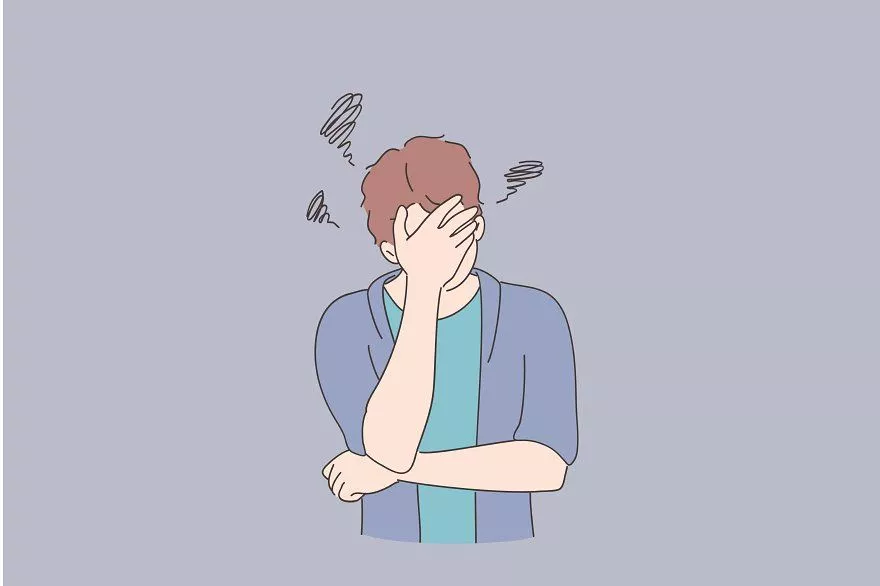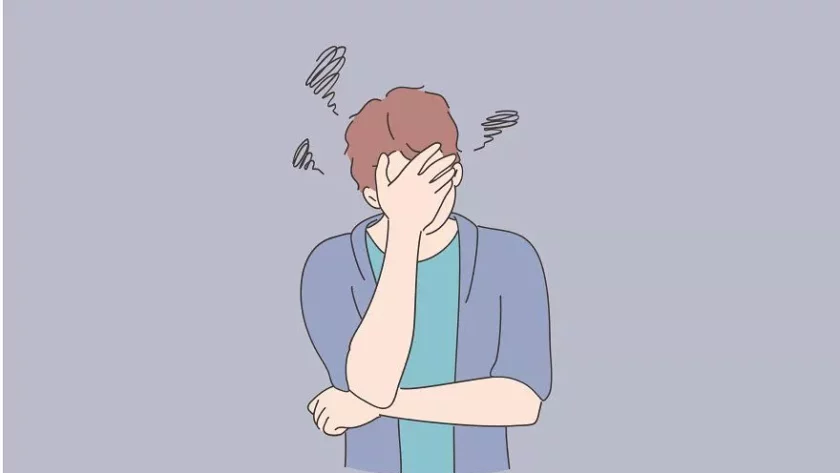Over View
Contents
Chronic stress refers to stress that lasts for weeks, months, or even years, it happens a due variety of things like work, relationships, health issues, etc
For a certain period of the time stress is normal, but when stress becomes chronic stress it can increase the risk of several health issues.
So it is important to find, out what causes stress in you, and how to manage it, before becoming chronic (leads to depression)
What Is Chronic Stress?
Physical, and mental stress (generally do not last long), but in some people this stress are become difficult to manage, which over time changes into chronic stress.
And there are various things that – Why this stress becomes difficult to manage in your life.
Stress is a normal response to demands and challenges in our life, however, it also helps us to push over the limit and get things done.
According to WHO stress is the leading cause of mental health illness worldwide, which is also allied with physical health issues including:
- Heart disease
- increase the risk of thyroid issue
- diabetes
- high blood pressure
- depression, and anxiety disorder
- headache is common in these people
- weak immune system
- the person will have difficulty sleeping
Stress and anxiety affect everyone, whether it is young, old, rich or poor, gender, and cultural background (1)
Stress is such a thing that over time truly gives birth to anxiety and depression, and can lead to hospitalization for a long time.
Check Out – Yoga Asanas That Will Help In Relieving Stress

Symptoms of Chronic Stress
It affects the whole body, it can have several physical and mental signs and symptoms, which affect your family routine including:
- Persistent feelings of anxiety or nervousness – Chronic stress can cause constant feelings of worry even when there is no concern.
- Difficulty in sleeping – stress can also interfere with your sleep pattern, where lack of sleep makes worse your stress situation.
- Changes in appetite – It reduces your appetite even if you are hungry, by disturbing your body’s natural hunger cycle, which event leads to being underweight.
- low self-esteem – Chronic stress can cause sad, and hopeless feelings, and a lack of interest in once-enjoyable activities.
- Fatigue – Can emotionally and physically exhaust you, by challenging you to find the energy in your daily tasks.
- Headache – It is a most common sign, and there are many reasons that lead to headaches including lack of sleep, tension, and pain.
- Difficulty in concentrating – Stress can make it difficult to focus on work, due to thinking of stress causes.
- Difficulty sleeping -Stress is associated with sleeplessness, where lack of sleep can even worse the stress situation.
- Digestive Issues – The muscles of the digestive system are affected by high cortisol levels in stressed individuals and may contract or relax abnormally.
- low libido – When we are under stress, the body’s natural sexual desire becomes low, which also can be difficult to relax.
- Make you angry, and irritable – Chronic stress compresses your serotonin level (a feel-good hormone) and low serotonin level allied with feeling anger.
- Frequent diseases – Stress makes the immune system weak, and with a weakened immune system, our chances of illness are highly increased.
It found that the immune systems of people who are older or already sick are more chance to get stress-related changes.
Causes of Chronic Stress
Long-term stress, and not managing on time is the most common reason for chronic stress.
However, there are some external factors or circumstances that cause feelings of tension and chronic stress including:
- Workplace stress
- money issues
- relationship problems
- chronic illness or diseases
- responsible for the family, career tension, and demands of parents
- living in a stressful environment
- having high expectations for yourself or setting irrational goals.
Stress is commonly seen in the workplace, which affects your daily routine, and quality of life.
Acute Vs Chronic Stress
Chronic stress and acute stress are two different types of stress and each can affect the body differently.
Acute stress
Acute stress is the type of stress that occurs when a person experience event, trauma, or situation, which is more serious.
This kind of stress is usually short-term and resolves over time once the event or trauma has passed.
However, In short doses, it can be helpful to spark us to take action on our dream to make them true and solve problems.
Chronic stress
On the other hand, chronic stress is due to long-term stressful situations such as money, relationship issues, work demands, etc.
Chronic stress is able to weaken the immune system, which opens the gate to several diseases in the body including heart, and even cancer.
It even leads exacerbate certain mental health conditions, such as anxiety, depression, and PTSD (post-traumatic stress disorder)
Both Acute and chronic stress can negatively affect our mental and physical health, so it is vital to manage your stress.
How Does Chronic Stress Affect Our Body?
Stress can affect the body in various ways, including headaches, make you angry, and irritation, and affect the brain negatively.
Research has shown that chronic stress and normal stress both can impact the brain and immune system by weakening them.
Over time this Chronic stress can weaken your immune system, which may increase the risk of diseases and several health problems including:
- Make worse the anxiety situation
- depression
- post-traumatic stress disorder (PTSD)
- cardiovascular problems
- high blood pressure
- fatigue
- increase the chance of stroke
- weak immune system
- Irritable bowel syndrome and acid reflux
- heart disease
- insomnia (where a person makes it difficult to fall asleep)
- low libido in both women and men
- skin irritation and disorder
- respiratory infections (Graves’ disease and rheumatoid arthritis)
So manage your stress, before it becomes chronic stress by maintaining overall health and well-being.
There are various cope ways to cope with stress, such as yoga, and breathing exercises like anulom vilom, meditation, exercises, etc.
If you experience pain, or negative thoughts so talk to a professional doctor, who will provide the ideal treatment for you.
How Can We Deal With It?

There are several things that are very helpful in coping with stress, and we already talk about them in our previous chapters about stress.
There are most popular and best techniques to reduce stress, and anxiety feeling is:
Find The Cause of Your Stress
It is vital to find your causes of stress before it becomes chronic stress (causes anxiety, depression, and other mental health issues)
To find causes, you can consult the doctor, who diagnoses chronic stress by asking you questions and doing some tests.
If you find that the workplace, your health, and sleep is the reason for your chronic stress, then start working on them.
Yoga
One of the best way stress-busting techniques is yoga, which reduces stress, as it teaches you to control your breath and mind.
In a study, it was found that during 12 weeks of yoga saw greater improvement in mood and greater decreases in anxiety, compared to the walking group (6)
Exercises
Regular physical activity can help in decreasing chronic stress by releasing endorphins in the brain (a hormone that is responsible for feeling good)
Make you target at least 30 mint of moderate exercises, such as fast walking, cycling, and simple running (2)
Set Your Limitation
It is really helpful when you set your boundaries by saying “No” to unnecessary things which reduces the risk of chronic stress.
It keeps you away from too many promises, responsibilities, and commitments which is a way that somewhere leads to stress.
Other Techniques To Reduce Stress
- Practice relaxation techniques including – Progressive Muscle Relaxation, deep breathing, and meditation.
- Getting enough vitamins and protein intake
- listen to music
- asks for support if you think this is out of control
- take a break from the workplace, and situations that can be the reason for your chronic stress.
- practice gratitude
- engage in activities that you enjoy, like spending time with your pets and babies
- avoid alcohol, smoking, and caffeine
- practice self-care
- find ways to manage your time effectively
- spend time in nature, the environment
Treatment of Chronic Stress
Treatment of chronic stress depends on how deep, and what causes it, if any cause finds, then the doctor will first treat it.
There are some effective treatment options include:
Medication – It is a common suggestion by doctors, which controls the signs and symptoms of chronic stress such as anxiety and depression.
Therapy – CBT can help people find and modify their negative thoughts feeling and stress-inducing behaviors.
Exercise – Endorphins (a hormone that releases during feeling pain or stress) and improve mood-related issues like anxiety, etc.
Stress Management techniques – Yoga (anulom vilom, child Pose (Bala asana), meditation, tai chi, breathing exercises, etc.
Adopt a healthy lifestyle – means: eating a well-balanced diet, enough sleep, the balance work, and free time.
Time management – Finding good ways to manage your time, which will help you feel less stressed.
Take Support – It is truly helpful in managing your stress, by talking to your loved ones will about your feel or mental health doctors.
How Much Time To Recover From It?
It takes time to recover from chronic stress, which involves self-care, medication, and prescribed therapies.
There is no specific time to recover from chronic stress which depends on several factors including:
- How deep is stress
- personal management skills to stress
- kind of support individuals get from
Remember, patients should be calm, and focused, and allow themselves time to heal, so it is vital to follow a self-care routine.
Therapy, medication, stress management strategies, and healthy lifestyle choices may all be used to treat chronic stress.




